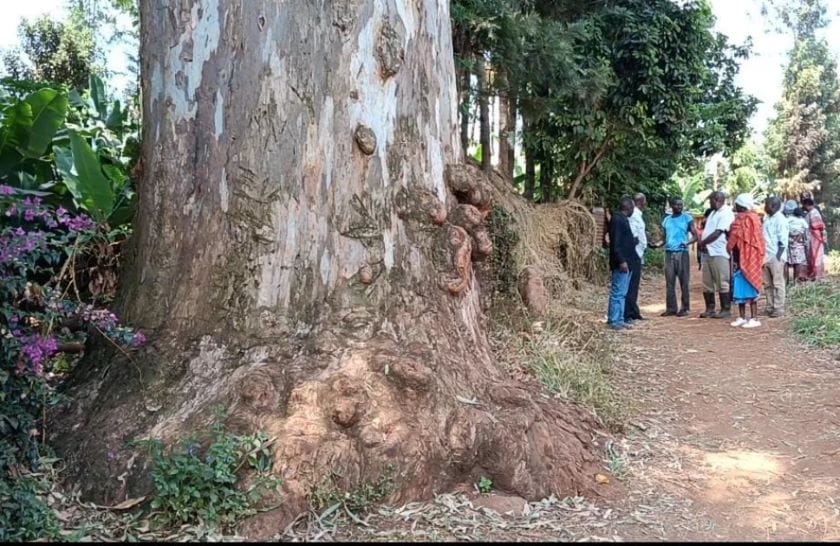Two little boys were getting ready for school when a sudden crash turned a normal morning into a family’s worst nightmare. In Kimbimbi village, Mwea-East, a heavy branch from a large tree fell on a rented house and killed brothers aged three and eight. Neighbours who rushed to help could only watch as rescuers carried the boys’ small bodies away, leaving a stunned community to ask why the danger went unchecked for so long.
Residents say the tree stood inside a compound owned by the National Irrigation Authority. For years they told the authority the tree was dangerous, they say, but nothing was done. “We are wondering whether the National Irrigation Authority was waiting for children to die,” said Peter Kinyua, a neighbour. “This tree has been here for over 60 years and it must be removed.” The family’s grandfather, Dominic Muriuki, described the scene: his grandsons were dressed in school uniforms and having tea when the branch crashed through the roof. Neighbour Patrick Wambugu rushed them to Kimbimbi Sub-County Hospital, but they were pronounced dead on arrival.
Local leaders confirmed the tragedy. Nyangati Location Chief Immaculate Wanjiru Njoka said the house was rented from NIA and that the branch fell suddenly, killing the children. Detectives from Mwea-East have opened an inquiry to establish the cause and whether warnings were ignored. Anger is rising; some residents warned they would block the Mwea-Embu highway if the authority does not act.
NIA had not commented at the time newspapers first reported the deaths. The authority’s public news pages show active projects in Mwea and past tree-planting campaigns, but no immediate statement on the accident was available when reporters asked. Officials sometimes say they work with county teams on scheme safety, yet neighbours say their letters and phone calls went unanswered. We checked NIA channels and found no formal reply as this story went to press.
Beyond grief, the case raises a clear legal question: who must keep people safe? Kenyan law gives occupiers and owners a duty of care where people live or visit. The Occupiers’ Liability Act says occupiers must guard against dangers from the state of their land or property. In national irrigation schemes, the Irrigation Act and its regulations set management roles that include scheme safety and oversight. If an owner or occupier knew of a hazard and did nothing, victims may seek answers in court.
This is not only legal. It is about trust. A tree can be a useful shade for decades. But when limbs crack and fall, the same tree becomes a threat. Local people want two things now: a quick, public response from NIA, and firm action to make the site safe. They also want a full, transparent probe so families know whether warnings were ignored and whether anyone should be held responsible.
For the Muriuki family, no law will bring back the boys. For the community, swift action can stop another loss. Authorities must secure the site, preserve evidence, and explain what steps they will take to remove or prune dangerous trees across schemes. If institutions move fast and openly, they can turn grief into prevention. If they do not, anger and distrust will grow—and more lives could be at risk.
Featured image via Screengrab





